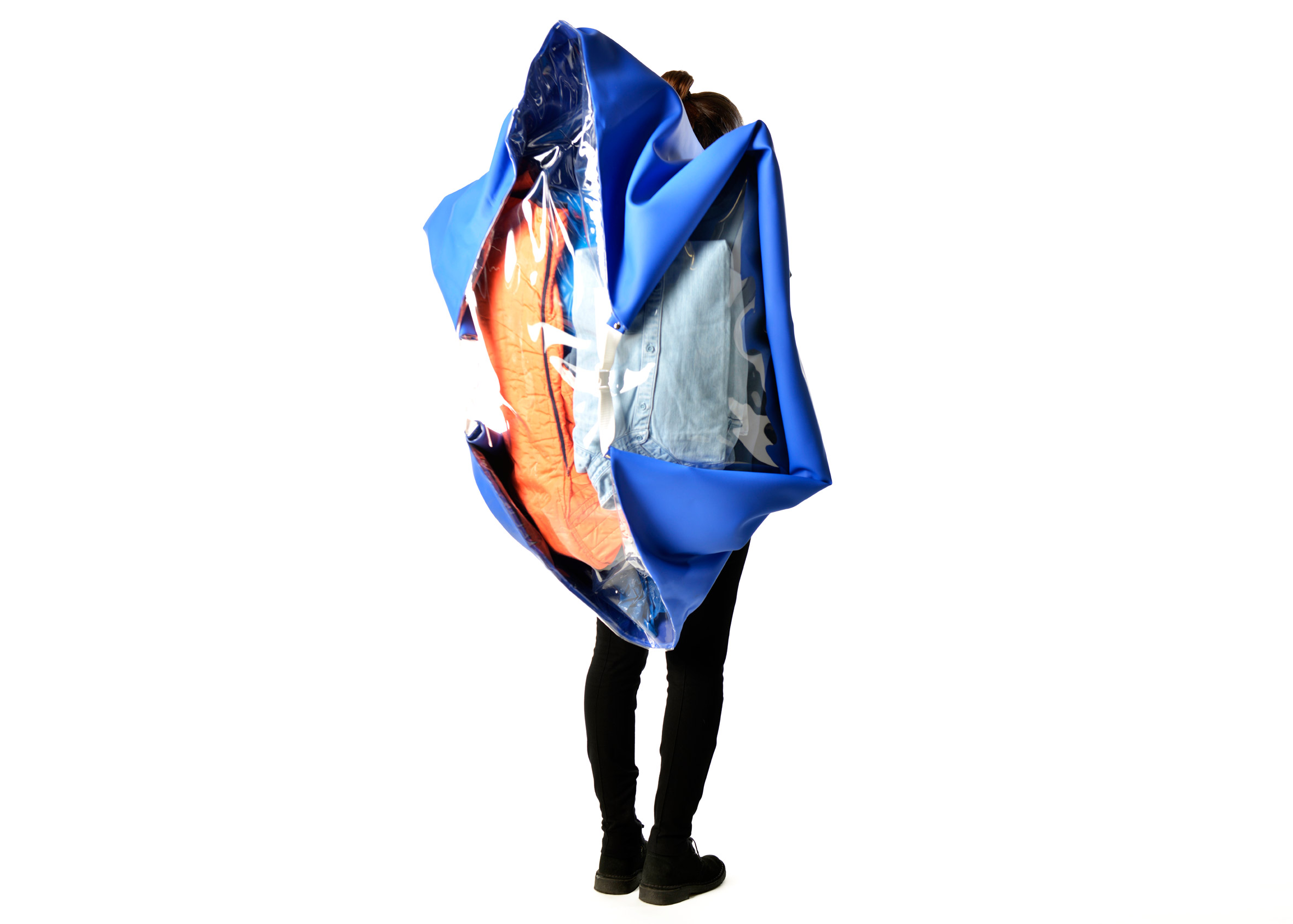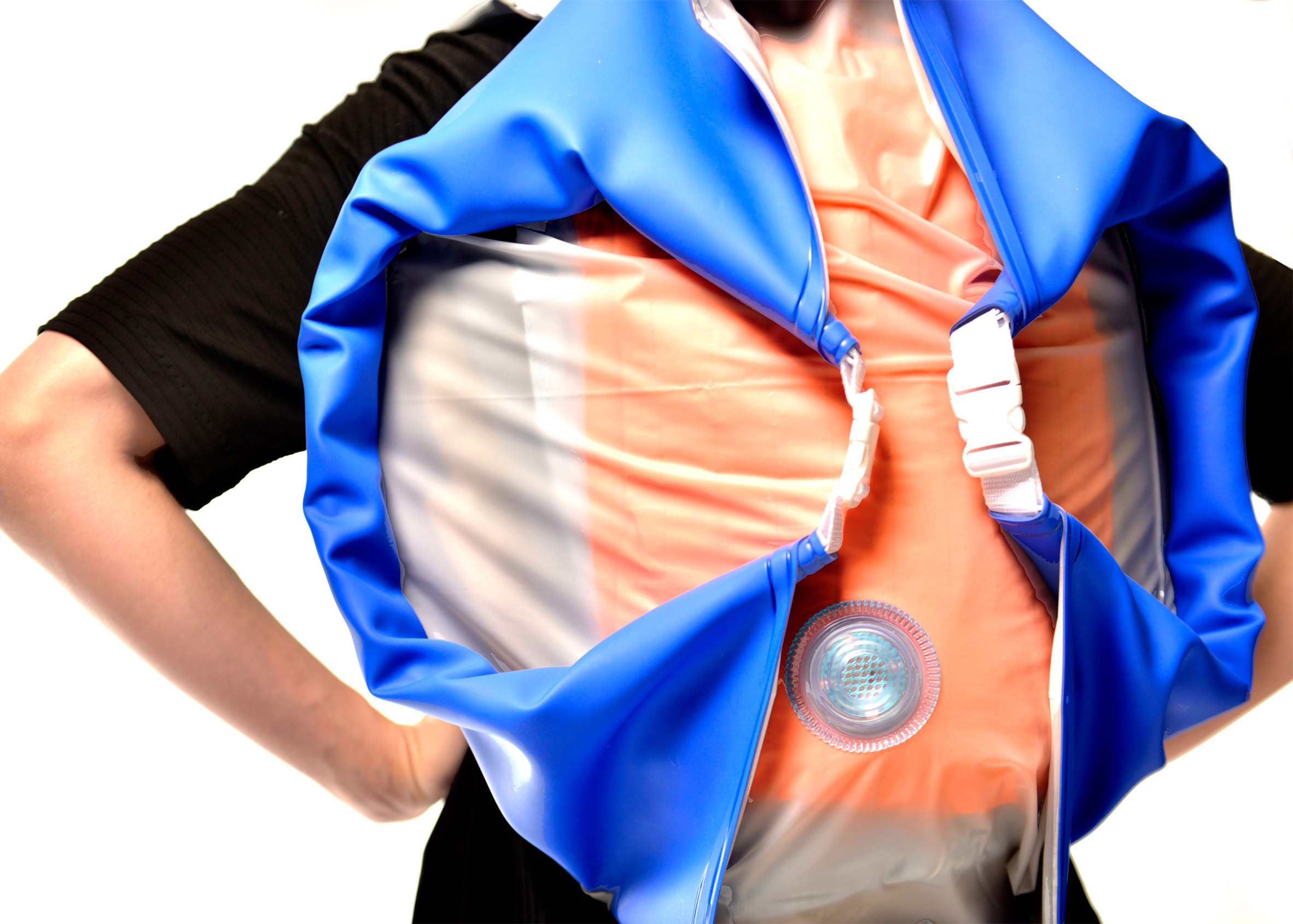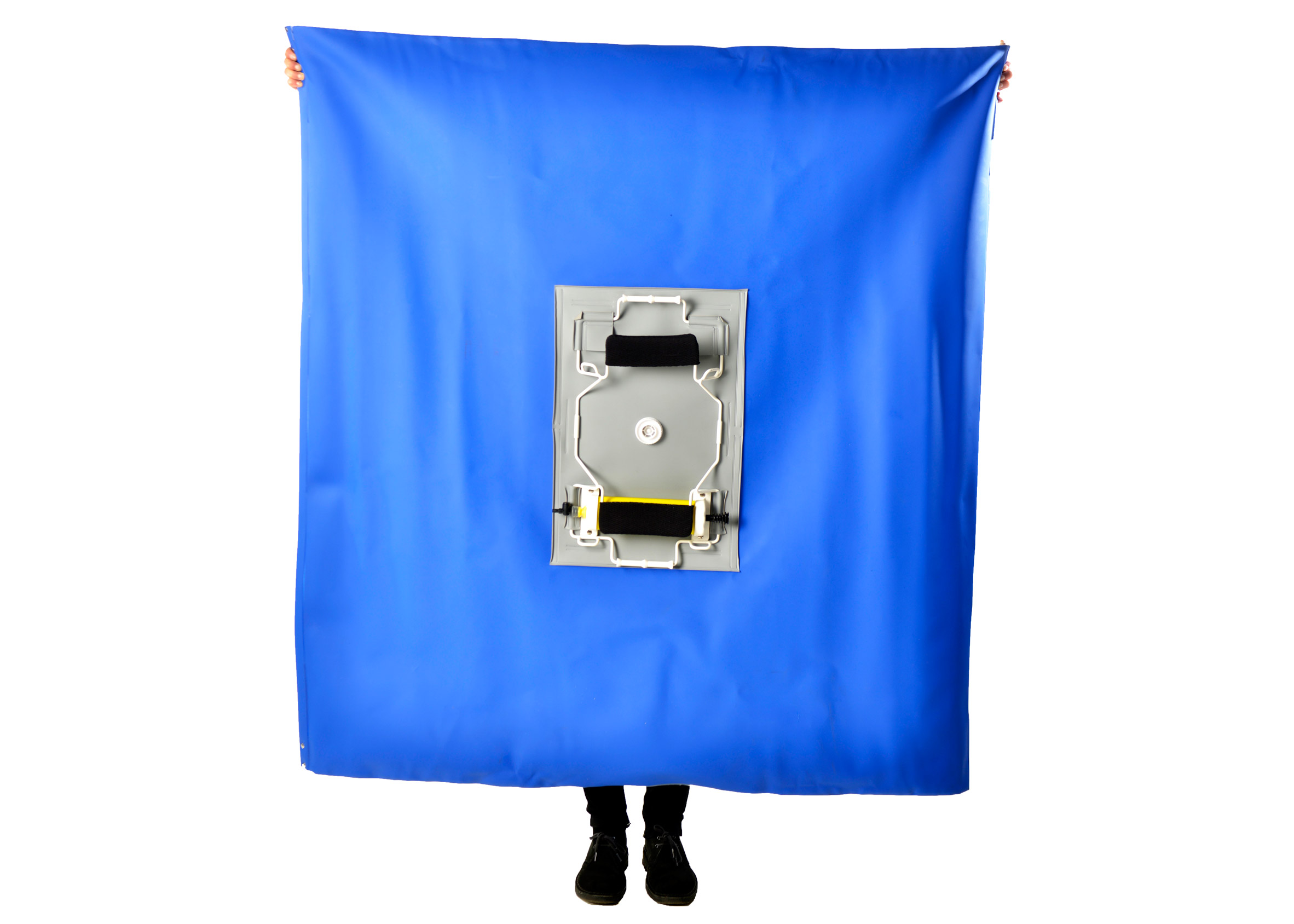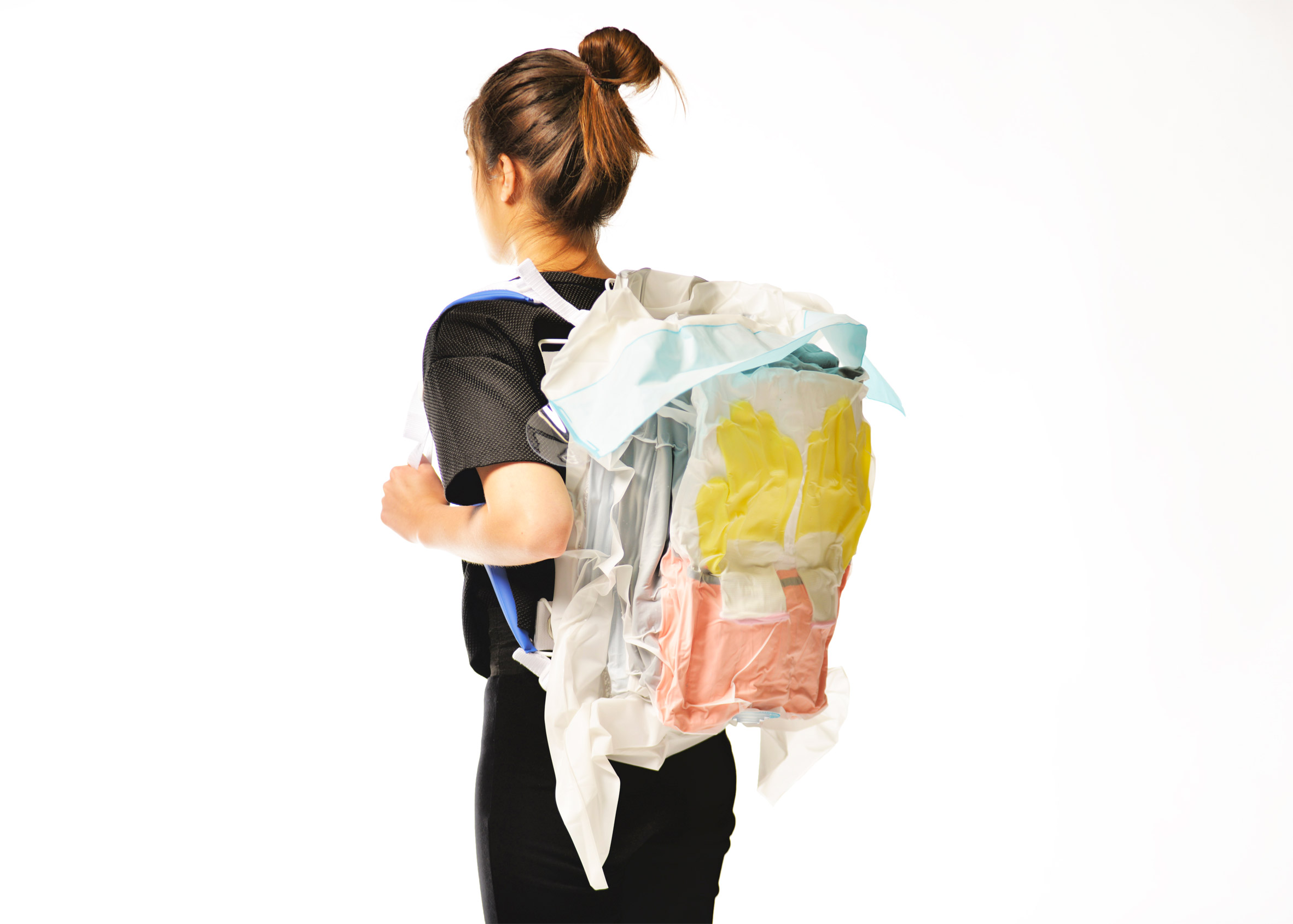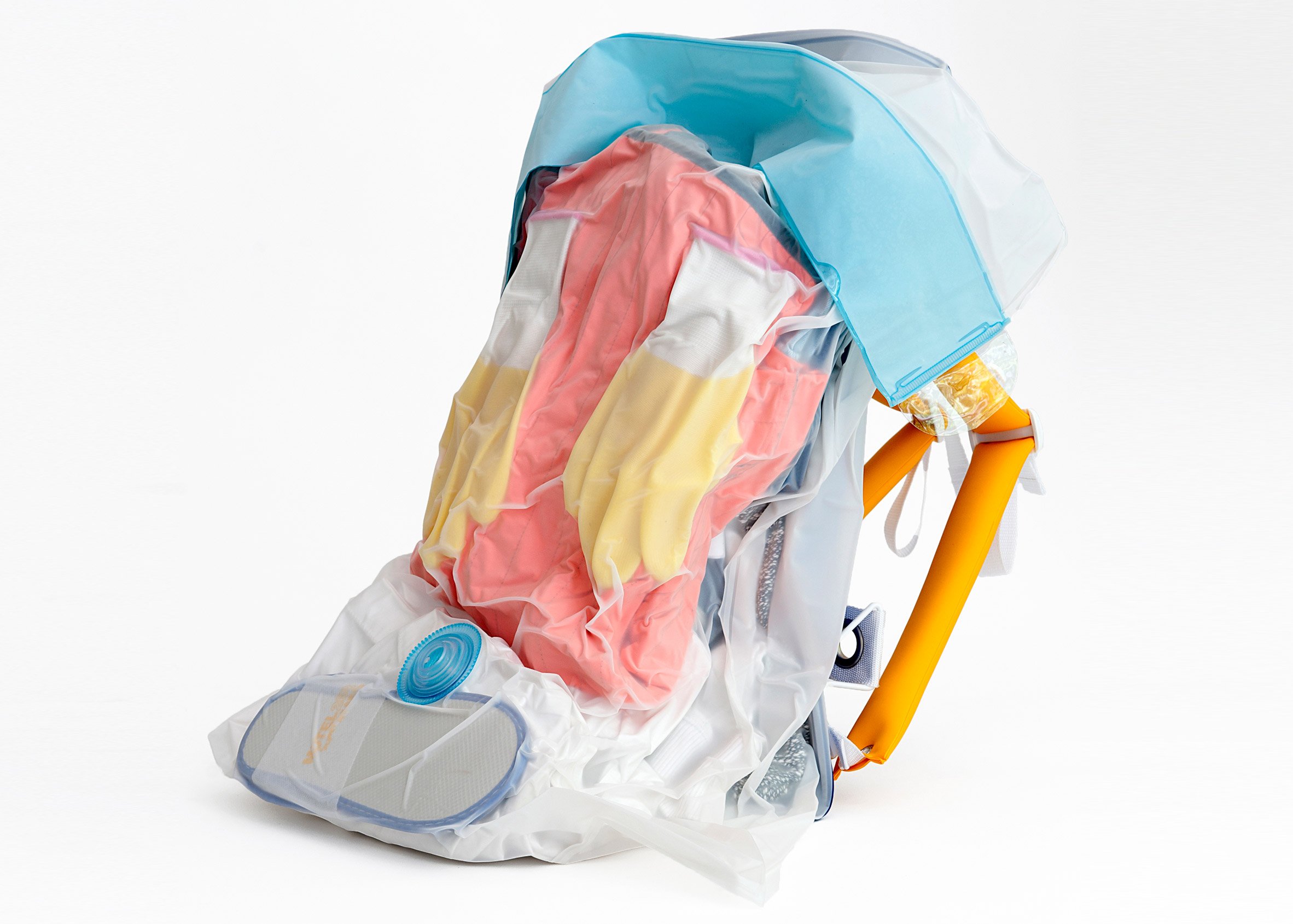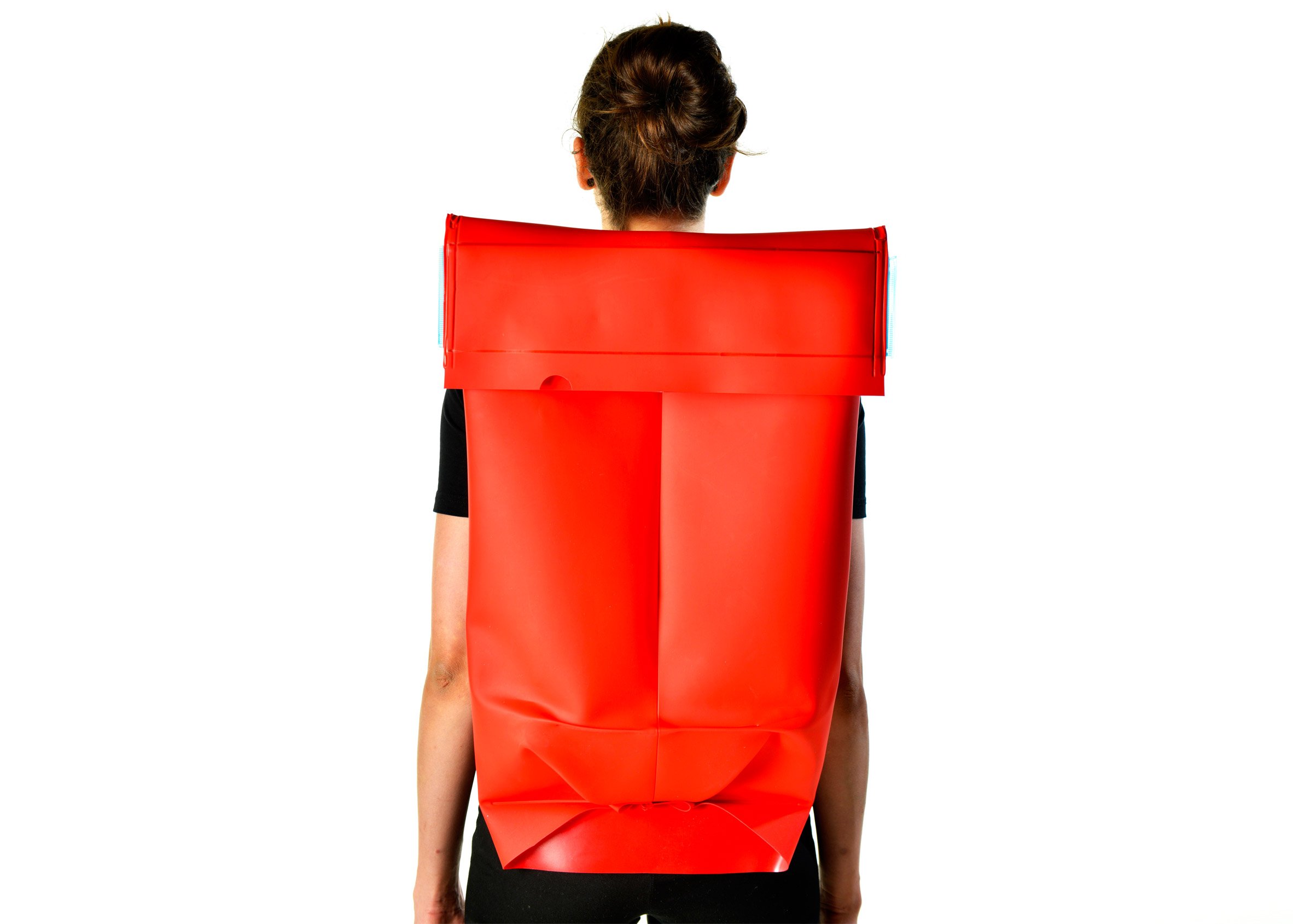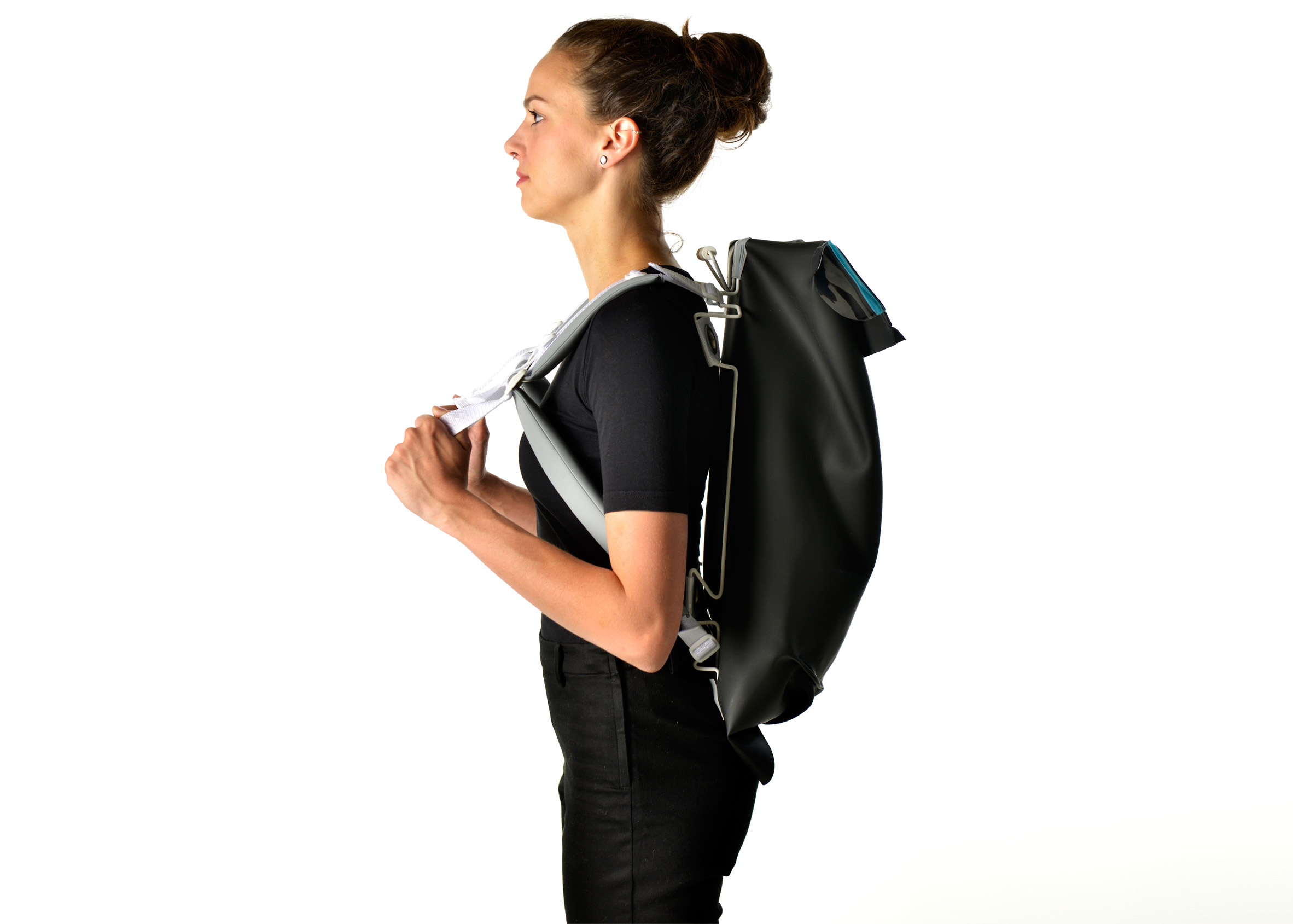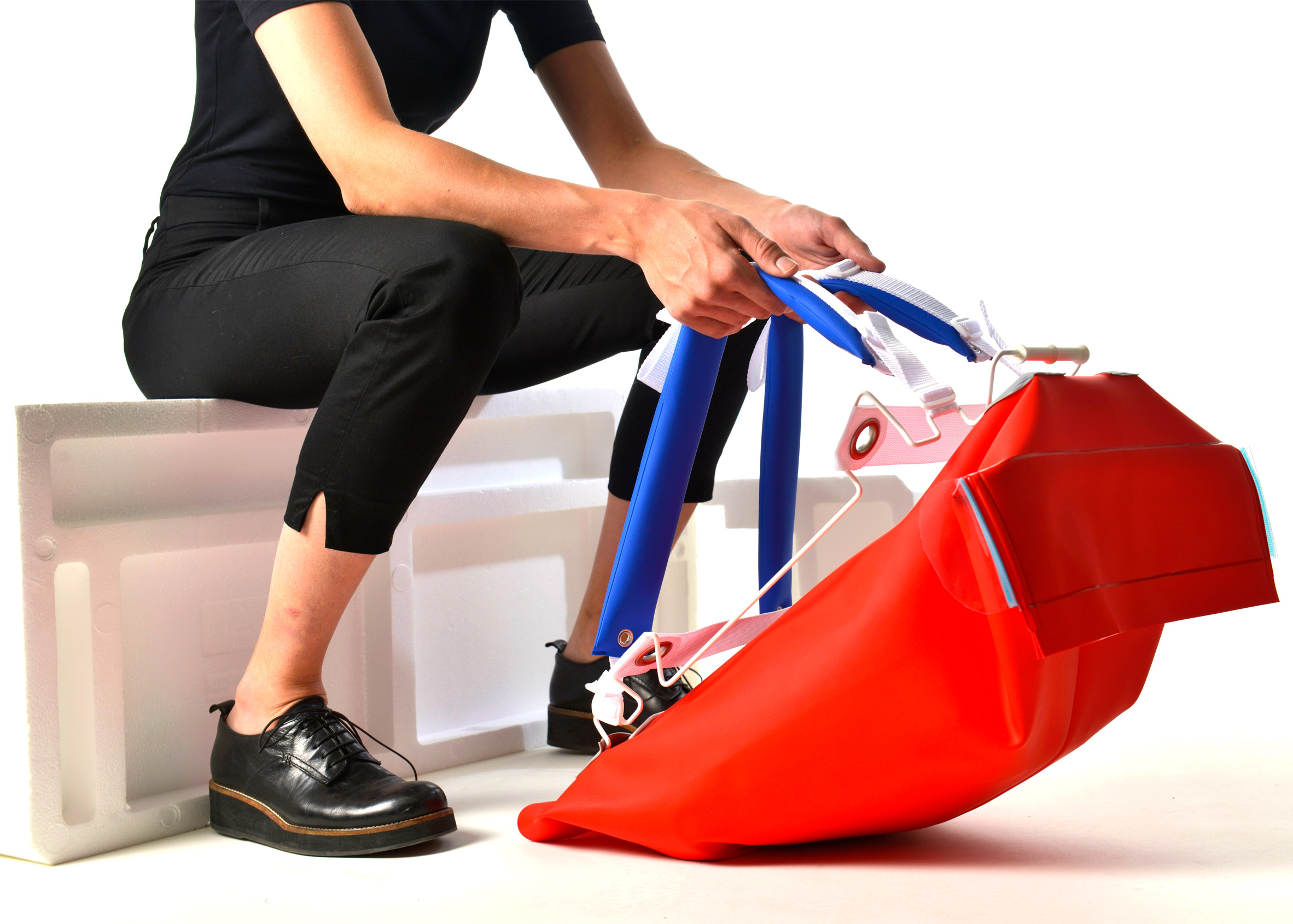Dutch designer Casper Notenboom has created a collection of bags that references the way that people in China transport large stacks of goods on their bikes.
The Increase Decrease bag collection is on display as part of an exhibition of projects that respond to different Chinese social issues at this year's Beijing Design Week.
During an internship in Beijing, Notenboom noticed that local people carried teetering, top-heavy piles of goods on the back of their bicycles. This prompted him to create a collection of backpacks that can adapt in shape and size according to their content.
"During my internship in China I got inspired by the often primitive way that people carry, package and transport their belongings," explained Casper Notenboom.
"This manner of transporting goods fascinates me as an image but also as a way of constructing."
A large rubber back opens up to allow the user to fit in as much content as possible. It can then be vacuum packed to reduce its size and make it easy to carry.
"By using the construction of the bag and fixing it with techniques such as vacuum- and heat-sealing, the bags are easily adaptable to what is inside them," explained the designer.
"Modern-day life is making individuals more mobile and this results in an increasing demand for adaptability and flexibility."
Available in different styles, material and colours, each of the bags has a simple white frame that acts as a main support.
Another recent backpack redesign came from Royal College of Art graduate Peng You, who created an inflatable model that keeps electronic devices safe from knocks and bumps.
Increase Decrease is on display in The Global School exhibition, as part of Beijing Design Week's Baitasi Remade, which is located in the historic zone of Baitasi.
Beijing Design Week runs from 23 September to 7 October 2016. Other projects on show include designer Thomas Schnur's pieces of furniture adapted from common objects like traffic cones and metal barriers.

